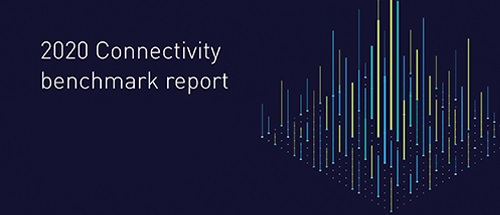OutSystems announced the general availability (GA) of Mentor on OutSystems Developer Cloud (ODC).
Organizations are increasingly leveraging APIs as building blocks to streamline integration while supporting reuse and self-service across the enterprise, according to the 2020 Connectivity Benchmark Report from MuleSoft and Vanson Bourne.
In fact 80% of businesses currently use public or private APIs. However, very few have developed a strategic approach to enable API usage across the business.

Report findings include:
■ Company-wide API strategies are necessary to drive true value and reuse: Only 12% of organizations are mandated by leadership to abide by a company-wide API integration strategy for all projects. More than half (54%) implement APIs on a project-by-project basis or use a strategy that's siloed within certain parts of the business.
■ Businesses don't have an easy way to share APIs: Less than half (42%) of internal software assets and components (e.g., code, APIs, best practice templates) are available for developers to reuse. Most organizations (80%) also don't have a completely effective way to share APIs or integrations.
■ New business users are emerging, amplifying the need for reuse: Outside of IT, the top three business roles with integration needs include business analysts (40%), data scientists (38%) and customer support (38%).
■ Citizen integrators lack critical internal resources: 70% of ITDMs say they have a good strategy in place to enable non-technical business users to easily integrate apps and data sources with APIs. Despite this high level of confidence, 67% don't have a team that's dedicated to driving the sharing and reuse of APIs.
API Reuse Linked to Speed of Innovation, Operational Efficiency and Revenue
By establishing API strategies that promote self-service and reuse, businesses put themselves in a much better position to innovate at speed, increase productivity and open up new revenue streams.
More than half (52%) of organizations say that IT has generated the most business value by building reusable integrations that save time and money on future projects. Despite this success, only 42% of ITDMs are leveraging APIs to increase the efficiency of their application development processes.
■ Most organizations are making integration harder on themselves by not designing APIs for reuse: Among organizations that leverage APIs, 52% use them as part of the development process for new projects and 52% use them to build integrations. However, less than half (46%) say their APIs are reusable, highlighting outsize opportunity for IT to be more effective in the delivery process.
■ Organizations aren't activating API ecosystems: Of those leveraging APIs, only 26% of organizations are driving innovation with partner and external developer ecosystems by exposing them to third parties.
■ When designed with intent, APIs drive business outcomes: Organizations using APIs benefit from operational improvements such as increased productivity (54%), increased innovation (47%) and greater cross-team agility for self-serve IT (46%).
■ APIs are the new revenue stream: On average, nearly a third (31%) of businesses' revenue is being generated by APIs or by API-related implementations.
Methodology: For the fifth annual Connectivity Benchmark Report, MuleSoft, in partnership with Vanson Bourne, surveyed 800 IT leaders from global enterprises. The goal was to uncover how much value businesses actually gain from digital transformation, and to understand IT leaders' most successful strategies for achieving digital transformation goals. The online survey was conducted between October and November 2019 across the United States, the United Kingdom, France, Germany, Netherlands, Australia, Singapore, Hong Kong and Japan. Only suitable candidates participated in the survey and were verified by using a rigorous, multi-level screening process. All respondents work at an enterprise organization in the public or private sector with at least 1,000 employees and hold a managerial position or above in an IT department.
Industry News
Kurrent announced availability of public internet access on its managed service, Kurrent Cloud, streamlining the connectivity process and empowering developers with ease of use.
MacStadium highlighted its major enterprise partnerships and technical innovations over the past year. This momentum underscores MacStadium’s commitment to innovation, customer success and leadership in the Apple enterprise ecosystem as the company prepares for continued expansion in the coming months.
Traefik Labs announced the integration of its Traefik Proxy with the Nutanix Kubernetes Platform® (NKP) solution.
Perforce Software announced the launch of AI Validation, a new capability within its Perfecto continuous testing platform for web and mobile applications.
Mirantis announced the launch of Rockoon, an open-source project that simplifies OpenStack management on Kubernetes.
Endor Labs announced a new feature, AI Model Discovery, enabling organizations to discover the AI models already in use across their applications, and to set and enforce security policies over which models are permitted.
Qt Group is launching Qt AI Assistant, an experimental tool for streamlining cross-platform user interface (UI) development.
Sonatype announced its integration with Buy with AWS, a new feature now available through AWS Marketplace.
Endor Labs, Aikido Security, Arnica, Amplify, Kodem, Legit, Mobb and Orca Security have launched Opengrep to ensure static code analysis remains truly open, accessible and innovative for everyone:
Progress announced the launch of Progress Data Cloud, a managed Data Platform as a Service designed to simplify enterprise data and artificial intelligence (AI) operations in the cloud.
Sonar announced the release of its latest Long-Term Active (LTA) version, SonarQube Server 2025 Release 1 (2025.1).
Idera announced the launch of Sembi, a multi-brand entity created to unify its premier software quality and security solutions under a single umbrella.
Postman announced the Postman AI Agent Builder, a suite empowering developers to quickly design, test, and deploy intelligent agents by combining LLMs, APIs, and workflows into a unified solution.
The Cloud Native Computing Foundation® (CNCF®), which builds sustainable ecosystems for cloud native software, announced the graduation of CubeFS.




